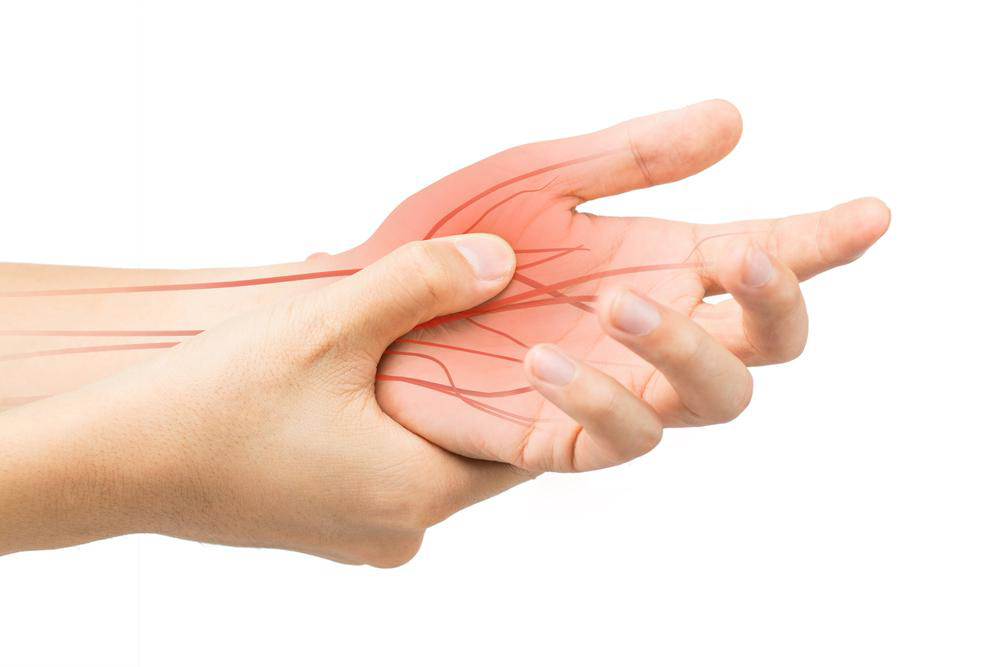Comprehensive Guide to Naturally Easing Nerve Pain and Discomfort
This comprehensive guide explores natural and medical strategies to effectively reduce nerve pain and discomfort. It emphasizes anti-inflammatory diets, physical therapies, supplements, and appropriate medications, providing a detailed approach for long-term nerve health improvement. Learn how to alleviate nerve symptoms and prevent further damage through practical tips and lifestyle adjustments.

Comprehensive Strategies for Naturally Easing Nerve Pain and Discomfort
Nerve health is essential for managing numerous bodily functions, including sensation, motor skills, and autonomic processes like breathing and circulation. Due to the extensive distribution of nerves throughout the body, nerve injuries and dysfunctions are common and can lead to a variety of symptoms ranging from mild discomfort to severe pain. Damage to nerves can result from various causes, such as injury, inflammation, compression, or degenerative conditions, manifesting with symptoms like burning sensations, tingling, sharp pain, numbness, and sometimes abnormal sweating or dizziness. Although nerve pain can be distressing, there are numerous effective, non-invasive strategies to manage and alleviate symptoms, prevent aggravation, and maintain nerve health.
In this detailed guide, we will explore a wide array of natural remedies, dietary adjustments, physical therapies, and medical options to help those suffering from nerve discomfort. Whether you are experiencing chronic nerve pain or occasional discomfort, understanding these strategies can significantly improve your quality of life and prevent long-term nerve damage.
Adopt Anti-Inflammatory Dietary Habits
Inflammation plays a pivotal role in nerve pain; reducing inflammation is crucial for relief. Making thoughtful dietary choices can help lower systemic inflammation, thus alleviating nerve discomfort. Focus on consuming whole, unprocessed foods and avoiding excessive sugar, refined carbs, and processed snacks that promote inflammation. Nutrient-rich foods can support nerve repair and reduce pain intensity. Recommended dietary additions include:
Fresh fruits such as berries, oranges, and apples, which are rich in antioxidants
Dark, leafy greens like spinach, kale, and Swiss chard
Healthy fats from sources like extra virgin olive oil, avocados, and omega-3-rich fish
Nuts and seeds, especially walnuts, almonds, flaxseeds, and chia seeds
Lean proteins such as chicken, turkey, and fish to promote tissue repair
Spices like turmeric and ginger known for their anti-inflammatory properties
Herbal teas like green tea that contain anti-inflammatory and antioxidant compounds
Plenty of water — hydration is key to reducing inflammation and supporting nerve health
Complement your diet with lifestyle adjustments focused on reducing inflammation. This combined approach can greatly diminish nerve pain over time.
Use Alternating Heat and Cold Therapy for Relief
Alternating heat and cold applications are time-tested methods to alleviate nerve pain effectively. Heat therapy helps relax tense muscles, improves blood flow, and reduces stiffness, which can help ease nerve compression and pain. Cold therapy, on the other hand, numbs nerve endings and reduces inflammation and swelling, providing swift relief from acute discomfort. Proper application involves wrapping ice packs or frozen peas in a towel to prevent frostbite and applying heat via heating pads or warm compresses. Switching between these therapies every 15-20 minutes can enhance pain relief and promote healing.
Be cautious not to overuse either method, especially if you have sensitive skin or circulatory issues. Always consult with a healthcare professional before starting any new pain management techniques.
Incorporate Gentle Stretching and Physical Therapy
Maintaining flexibility and reducing muscle tension around nerves can significantly lessen nerve compression and related pain. Gentle stretching exercises targeted at the affected areas can help increase nerve and muscle mobility, reduce pressure, and enhance circulation. Specific stretches might include neck rotations, hamstring stretches, or calf stretches depending on the pain site. However, it’s critically important to perform these exercises carefully and consult a healthcare provider or physical therapist to develop a safe and effective routine. Proper guidance ensures that stretching promotes healing without causing further injury.
Additionally, physical therapy sessions incorporating massage, ultrasound, or nerve mobilization techniques can provide advanced relief and improve nerve function over time.
Support with Proteolytic Enzymes and Supplements
Chronic inflammation is a common culprit behind long-term nerve damage. Proteolytic enzymes, naturally occuring or supplemental, can help break down inflammatory chemicals, reduce swelling, and protect nerves from ongoing damage. As natural enzyme production declines with age, particularly after age 20, supplementation can be beneficial for sustained inflammation control. Common enzyme supplements include bromelain, papain, and serrapeptase — always consult your healthcare provider before starting any supplement to ensure compatibility and safety.
Maintain Adequate Hydration
Proper hydration is fundamental to overall health and plays a significant role in reducing inflammation and supporting nerve function. Dehydration can lead to increased nerve sensitivity and exacerbate pain. Drinking plenty of water daily helps maintain electrolyte balance, supports blood circulation, and ensures nerves and muscles operate optimally. Limit or avoid caffeinated and sugary drinks, which can dehydrate the body and promote inflammation.
Make hydration a daily priority, especially if you experience nerve pain or inflammation-related discomfort.
Leverage Natural Anti-Inflammatory Spices like Ginger and Turmeric
Incorporating natural anti-inflammatory spices into your diet can provide additional relief from nerve pain. Ginger contains bioactive compounds that help reduce inflammation and promote circulation, easing nerve discomfort. Turmeric’s active ingredient, curcumin, is renowned for its potent anti-inflammatory and antioxidant properties. Regularly adding these spices to teas, curries, smoothies, or soups can support your body's natural defenses against nerve inflammation. To enhance absorption, combine turmeric with black pepper or a healthy fat source.
Medical Interventions and Medications
While lifestyle and natural remedies are effective for many, some cases require pharmacological treatment. Consulting with a healthcare professional is essential for tailored management. Several medications are prescribed to manage nerve pain, including:
Anticonvulsants such as gabapentin and pregabalin, originally designed for seizure disorders, but proven effective in nerve pain relief
Antidepressants like tricyclics and SNRIs (serotonin-norepinephrine reuptake inhibitors), which modulate nerve signal transmission and pain perception
It’s vital to follow medical guidance when taking these medications, as they can have side effects and interactions. In some cases, physical therapy, nerve blocks, or surgical interventions may be necessary for severe nerve damage or persistent pain. Always seek professional advice before initiating any treatment plan to ensure safety and optimal outcomes.
By combining dietary, physical, natural, and medical approaches, individuals suffering from nerve discomfort can achieve effective relief, improve nerve function, and maintain their overall well-being. Consistent management and professional guidance are keys to long-term nerve health and pain reduction.





